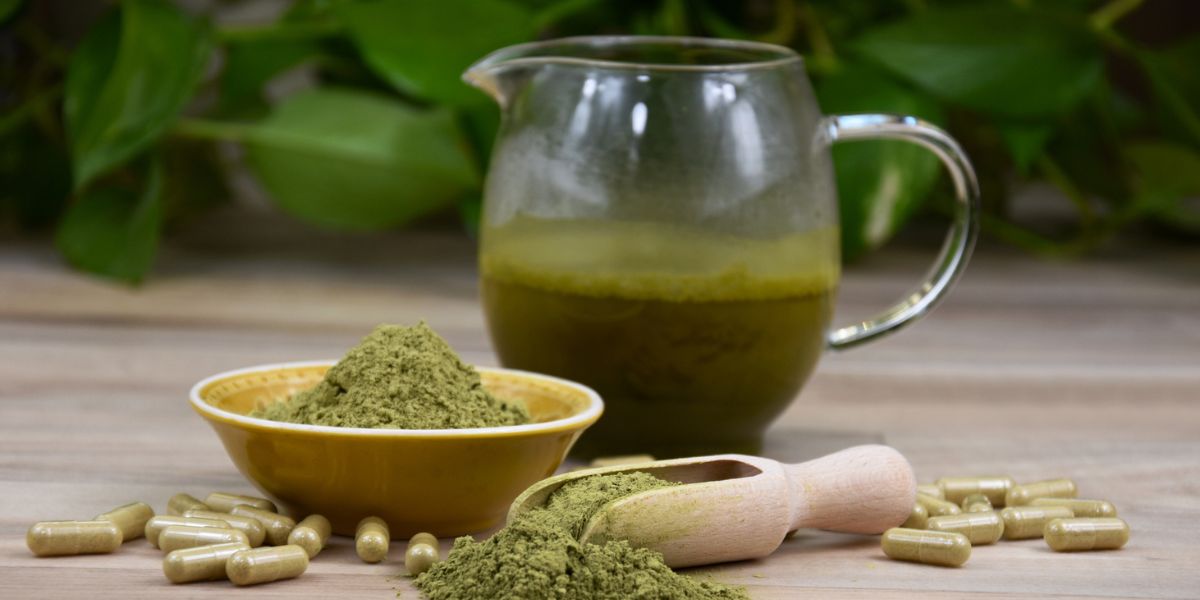Kratom Dangers and Side Effects


Medical Writer:
Reviewer:

Johnny Kim
Executive Psychotherapist
Medical Writer:
Reviewer:

Johnny Kim
Executive Psychotherapist
The discussion regarding the classification of kratom remains extensive and controversial. Historically utilized for its medicinal properties, kratom has been a remedy for various ailments, notably easing opioid addiction symptoms and opioid withdrawal along with mitigating dependency.
In rural areas of Thailand and Malaysia, kratom is used to help with pain, create feelings of happiness, and fight tiredness. However, acknowledging its addiction potential, both nations have imposed a ban on its recreational consumption.
Table of Contents
ToggleThe American Kratom Association reports an estimated 3 to 5 million users of kratom within the United States. Healthcare providers are under pressure to reduce opioid prescriptions. People struggling with addiction often use kratom instead, as it is a cheaper alternative to opioids. However, the US Food and Drug Administration, or the FDA, has alerted the public to the dangers of combining kratom with other substances, noting that such interactions can lead to severe liver damage and even death.
What Is Kratom Used For?
In the US, Kratom is sold as a natural supplement. People use it to help with various health issues and to create a legal and natural feeling of happiness. However, regulatory authorities have not yet defined the status of it as a dietary supplement.
The FDA does not recognize kratom as an approved supplement containing bulk dietary ingredients. The DEA does not consider kratom to be a separate substance. They think its active components, mitragynine, and 7-hydroxy mitragynine, should be classified as opioids. They want to place these components in Schedule I of the Controlled Substances Act.
The FDA warns against using kratom as a medical treatment or as a replacement for prescription opioids. This is because there is no scientific evidence proving its safety.
The FDA has warned about the risks of misusing and becoming dependent on kratom. FDA Commissioner Scott Gottlieb, MD, has also expressed concerns about the increasing dangers associated with using kratom.
From 2011 to 2017, the Poison Control Center recorded 1,174 cases related to kratom use. Symptoms included vomiting, confusion, seizures, and cardiac arrest. Out of 152 deaths linked to kratom, 91 were because of taking too much kratom. In only seven cases, it was the only substance found.
This data underscores the frequent combination of kratom with other substances, increasing the overdose risk. The Centers for Disease Control and Prevention (CDC) indicate that kratom’s components interact with other drugs, pointing to a considerable risk of harm.
US legislation does not designate kratom and its active components as controlled substances. The DEA has yet to recognize any permissible medical applications. It has not undergone clinical testing by healthcare entities or medical experts to confirm its safety and effectiveness.
What Is Kratom?
Kratom, or Mitragyna speciosa, is a tree native to Southeast Asia. It mainly grows in Indonesia, Malaysia, and Thailand. People use it for fun and as medicine. Farmers dry kratom leaves before transforming them into products such as powders, capsules, tablets, and extracts.

Forms
You can get kratom products from the internet, herbal stores, and places where they sell tobacco or smoking items, often called head shops. In the US, people usually use kratom as a liquid. They are increasingly using it as a powder mixed with food and drinks or in capsules.
Kratom can also be consumed by brewing it similarly to tea or coffee, where the leaf or powder is steeped in hot or cold water. This brew is typically bitter, leading many to add different sweeteners to improve the taste.
Uses
Kratom is favored for its perceived lesser harm compared to other opioids and is utilized for a broad spectrum of health-related purposes, such as:
- Boosting energy and alertness
- Improving mood in cases of depression
- Decreasing anxiety levels
- Minimizing or ceasing the use of pain medications
- Alleviating symptoms of PTSD
- Enhancing overall mood
- Pain relief
Kratom is also employed as a pain reliever because it seems to block pain signals through multiple mechanisms. It disrupts the neurons responsible for pain transmission in specific brain pathways, numbing these pain channels.
Yet, the DEA, CDC, and FDA do not acknowledge any legitimate medical applications for kratom. Reports from the CDC have documented instances where kratom interactions with other drugs have led to fatal outcomes.
Kratom Side Effects
Kratom’s effects can mimic those of stimulants and opioids because of its interaction with the brain’s opioid receptors. At moderate doses, it generates feelings of pleasure and reduces pain, while smaller doses create a stimulant effect, enhancing sociability and energy levels.
When taken in amounts of 5 grams or less, kratom typically has mild side effects. However, at higher doses, starting from 8 grams upwards, the adverse effects include:
- Confusion
- Constipation
- Dizziness
- Drowsiness
- Itching
- Sweating
- Dry mouth
- Reduced appetite
- Seizures
- Hallucinations
Kratom Dangers
The significant risk of using kratom comes from not knowing much about the chemicals in its leaves and how they could mix with medicines, other drugs, and herbal treatments.
Additionally, kratom product labeling should alert consumers to the unregulated production standards and the importance of ensuring the products are free from contamination.
In 2018, kratom was linked to a widespread salmonella outbreak affecting multiple states. The FDA’s investigations connected salmonella cases to three kratom brands, and of the 16 products tested, manufacturers of 6 remained unknown.
Moreover, there are critically hazardous risks when kratom is combined with certain antipsychotics, particularly quetiapine. The death of a 27-year-old man with a mental health history due to co-ingesting kratom with quetiapine underscores the urgent need for additional research into the drug interactions involving kratom.

Kratom Withdrawal
Kratom is purported to alleviate withdrawal symptoms from conventional opioids. Yet, akin to all substances with opioid-like properties, it can lead to dependence, culminating in withdrawal symptoms upon cessation. These symptoms can consist of:
- Diarrhea
- Fever and chills
- Aggressiveness
- Hostility
- Muscle pains
- Decreased appetite
- Irritability
- Watery eyes and runny nose
- Involuntary jerking motions
- Mood swings
Kratom Addiction Treatment
In most states, kratom is legal, but using it often and in large amounts can lead to tolerance, dependence, and addiction. If you or someone you care for is battling substance abuse, White Oak Recovery Center can provide compassionate treatment and care.
We provide medically supervised detoxification and a comprehensive residential treatment program for drug and alcohol rehab. White Oak Recovery Center can be your perfect refuge to attain serenity from addiction.
Reach out to us today. We can help. Take the first step toward your recovery now.

Am I covered for addiction treatment?
Your insurance may cover treatment. Call now for an entirely free and confidential assessment. Recovery starts with a phone call.

- Veltri, Charles, and Grundmann, Oliver, “Current Perspective on the Impact of Kratom Use.” Substance Abuse and Rehabilitation, Jul. 2019.
- Dixon, Brent R., et al., “Contamination of Some Kratom Products with Salmonella.” Ann Clin Lab Sci., Sep. 2019.
- Anwar, Mehruba, et al., “Notes from the Field: Kratom (Mitragyna speciosa) Exposures Repoerted to Poison Centers – United States, 2010-2015.” Centers for Disease Control and Prevention, Jul. 2016.
- Eastlack, Steven C., et al., “Kratom—Pharmacology, Clinical Implications, and Outlook: A Comprehensive Review.” Pain and Therapy, Jan. 2020.
- “Statement from FDA Commissioner Scott Gottlieb, MD, on the Agency’s Scientific Evidence on the Presence of Opioid Compounds in Kratom, Underscoring its Potential for Abuse.” US Food and Drug Administration, Feb. 2018.
- “Kratom: Drug Fact Sheet.” US Drug Enforcement Administration, Oct. 2022.
Medical Disclaimer:







